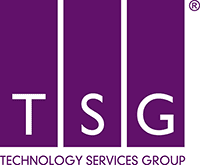The way businesses consume mobile services is changing
Telecoms has hit the headlines over the last week or so, with news that Dixons Carphone’s shares have taken a hit in relation to the business’ financial results. The reason for the hit on the share price? The mobile phone arm of Dixons Carphone has been said to have made a “significant loss”, citing the rapid change in how society is consuming mobile services.
But what does that mean?
Well, to put it bluntly, the life span of the handsets we use has extended, meaning networks are looking to tie customers into contracts for longer. This is to pay off said phones if we purchase them as part of our talk time plans.
Many customers I speak to today are using some sort of smartphone which typically has greater processor power and significantly more storage than my first PC back in 1994. This means we are treating them more like computers of old. Whilst many of us won’t want to admit it, the smartphone has become an everyday essential; it was recently reported that a third of teens actually sleep with their devices (Common Sense Media).
So many of us are working our devices into the ground; until the battery life has become so bad that we need to replace it, we lose the phone, or it gets broken. With Apple and many Android phones, new features are made available through regular software updates, so there’s less motivation to upgrade the physical handset to access the most up-to-date operating system and ‘nice to have’ features.
Personally, I only upgrade my phone when the battery gets to the point where it spends more time plugged into the wall than ‘mobile’, so why does that impact what I would call ‘traditional mobile’ providers? Well in short, if we aren’t refreshing phones as often, the contracts we are taking out are a lot lower in value as less people are paying the handset off as part of monthly bill payments. Reading between the lines, this is where most of the margin lies for mobile telecoms businesses.
Working out the cost of an iPhone X on a 24-month subscription with 10GB data; let’s say a typical monthly contract works out at £60 per month, or £1,440 for the full term, then compare this to a 10GB SIM-only contract totalling to around £300 for the full term… it’s easy to see where the issue lies. If you factor in the iPhone X, costing approximately £1000, buying the handset upfront saves me roughly £140. Now think about business; 30 of those devices and the savings quickly add up. Especially when you can expect for them to last 3 years as opposed to the old 12-month cycle we used to buy them on.
These are rough numbers, but you can get an idea of why businesses and consumers are beginning to look at how they buy their mobile hardware. It may be that this is temporary, with an influx of new devices being purchased for 5G when it goes national and all the carriers (including Gamma) launch their services. Current devices don’t work on the new spectrums, so SIM-only just makes sense to make sure you’re getting the most from your contracts and to be ready when the next-generation phones, so to speak, are commonplace. Although, I think I’ll leave the ins and outs of 5G for another blog post.
So, what should businesses do? Well, each one is different, and requirements vary, as well as the associated mobile estate. I see companies that are iPhone only, compared to others with a bring your own device (BYOD) approach – really you should choose what works for you (surprisingly some people hate iOS, who knew). Sticking with the same handset as long as you can does, however, mean that your OpEx when it comes to rentals can be greatly reduced, and gives you access to phones that meet your needs and price point. To put it into perspective, the primary difference in the user experience between an iPhone 5 and the X range is the facial recognition technology. I can still make and receive calls however, like many consumers, the way I use my phone day-to-day has evolved. Getting the right contract for my personal usage needs (10GB of data is enough for me) at the lowest possible price to accommodate for use of internet on-the-go is a key factor I consider, allowing me to stay connected at all times.
As always, we are happy to assist in these conversations and explore the different telephony options TSG offer to decide which is the best fit for your business needs. Our experts are best placed to advise on not only the subscription, but the greater mobility management piece to ensure your data is secure no matter where it is.

